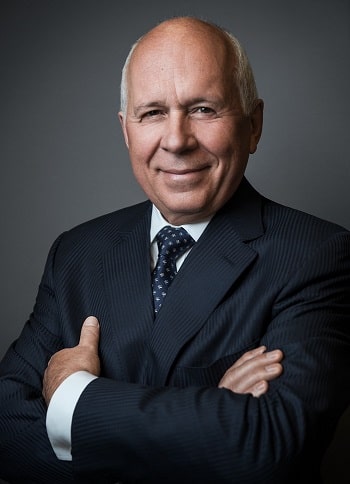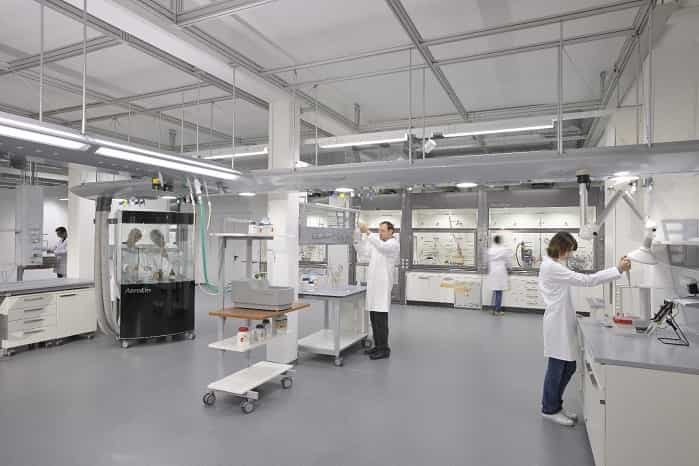Material Russian military helmets invisible - Arhive
New material makes Russian military helmets invisible Material Russian military helmets invisible
 A new textile material has been recently designed by the Russian military and industrial corporation Rostec to mask soldiers and military equipment, according to Rostec chief Sergei Chemezov.
A new textile material has been recently designed by the Russian military and industrial corporation Rostec to mask soldiers and military equipment, according to Rostec chief Sergei Chemezov.
According to Chemezov, the new material has chameleon like properties and can adapt to the colour of the environment. The company expects that at the initial stage the new development will be used for the needs of the Russian military, with a range of other applications being significantly expanded at a later date.Material Russian military helmets invisible
The level of investment in the design of the new textile material has not been disclosed, however, sources close to Rostec, say it could be in the range of US$100-150 million.
RosElectronics, a leading Russian producer of electronics, and TsNIITOCHMASH, a major designer and producer of weapons for the Russian military and MVD Internal Troops, took part in the design of the new material. The project also involved some leading Russian producers of technical textiles and nonwovens.Material Russian military helmets invisible
“In recent years the demand for innovative textile materials from the Russian military and defence complex has significantly increased. This is very important for us, as from our side, we constantly improve the equipment of Russian soldiers, making it more secure and safe,” commented Sergei Chemezov. He also added that the industrial production of the new product has already began.Material Russian military helmets invisible
In particular, the new material will be used in the production of a special invisible military helmet, designed by experts representing Russian military design bureaus, affiliated with Rostec.Material Russian military helmets invisible
In addition to soldiers, the new development will be used for the masking of tanks and other military equipment. Meanwhile, scientists at Rostec plan to continue their activities for the improvement of technical properties of the material, with the objective to expand its use to various industries. Among the new features that the scientists are working on at the moment, are the ability to display dynamic changes in colour intensity, and simulating complex graphic images, such as foliage vibrations (amid wind gusts).

Deputy Minister of Industry and Trade of Russia Viktor Yevtukhov said the new textile material provides opportunities for the design and production of the so-called smart clothing. “In this case, we are talking about an interesting and unique development, which is capable of radically changing the concept of design and production of clothing. Such unique textile materials will be especially in demand during the production of clothing, particularly those, which can withstand extreme temperature conditions or radiation,” he commented.Material Russian military helmets invisible
According the Russian Ministry of Industry and Trade, currently, the Russian innovative and smart textiles market is estimated at US$ 1,3 billion, however, its annual growth rates are significantly higher, than those in the EU and the US, at 7%-9% per year. Still, the consumption of innovative and smart textiles in Russia is two times lower than in developed countries.
In addition to Rostec, several other Russian industrial groups have unveiled plans to expand in this promising market in recent years. One of them is the Russian holding AFK Systema, which announced its intention to start the development of innovative textile materials several months ago.Material Russian military helmets invisible
In the meantime, the Russian government supports the launch of new investment projects in the industry, considering them to be very promising. According to the Russian Minister of Industry and Trade Denis Manturov, who oversees the development of innovative textile materials, in the medium term, the demand for technical textiles in Russia will grow fourfold.Material Russian military helmets invisible
“If we talk about traditional textiles, Russia has practically no chances to maintain its production on the same volume as in the past. The transfer of labour-intensive industries to countries with cheaper labour has resulted in the influx of cheap, low-quality products, which made local producers non-competitive. In this regard, a particular focus of the government is currently on the expansion of the domestic technical textiles production,” commented Denis Manturov.Material Russian military helmets invisible
“As experience shows, for example, in Germany, technical textiles provide up to 70% of the light industry’s growth, which means it is one of the top five high-tech industries in Germany,” said Andrei Razbrodin, president of the Russian Association of Textile and Technical Producers (Soyuzlegprom), a member of the Public Chamber of the Russian Federation.
